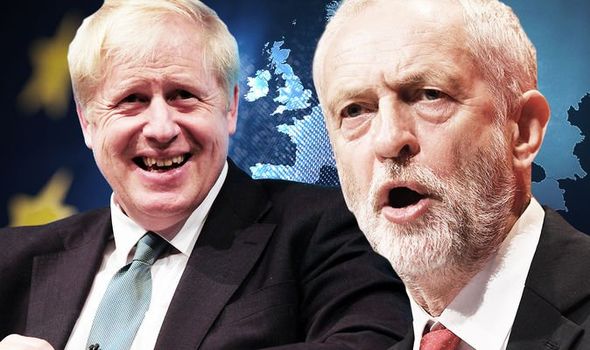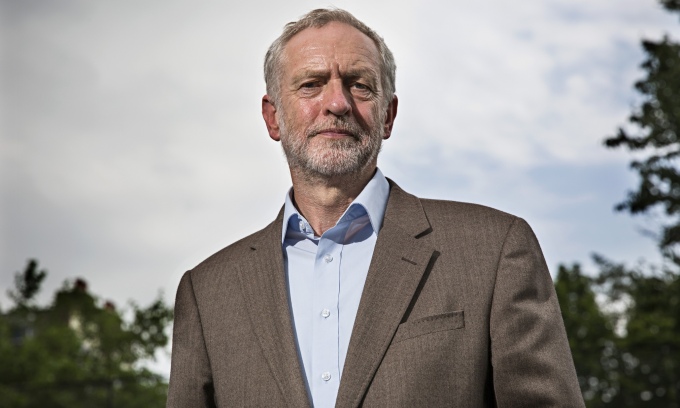
From an Objectivist perspective, the political situation of the United Kingdom is like a glaring searchlight pointed at the philosophical corruptions of the country’s culture. When reading the news one is bombarded with countless examples of bad philosophy, from the pragmatism of the middle-roaders trying to compromise between ‘yes’ and ‘no’, to the rationalism of the arguments for a second ‘people’s’ vote, to the invalid concept of ‘soft Brexit’. People are tired of it all, one frequently hears, and it’s no surprise – it’s exhausting listening to arguments made up exclusively of floating abstractions, misunderstood concepts and empty slogans, all sprinkled with a liberal helping of emotionalism.
I voted for Brexit, and this article will explain, in clear terms, the philosophy behind that decision.
My position on Brexit centers around the concept of individual rights. According to Objectivism, reason is man’s means of survival, and the basic function of a political system is to protect man’s ability to use and benefit from his reason. To achieve this a society must be free from the initiation of physical force – the ultimate enemy of reason – and it is individual rights that define exactly what force is. Crucially, individual rights are not up for debate; they are inalienable, meaning they cannot be voted away no matter how big your gang is. This includes the right to private property, meaning the right to use and dispose of what you have earned in any way you see fit. Included under this definition is the act of selling products free from regulation, and the act of buying foreign products tariff free (setting aside war and sanctions, which are responses to violations of individual rights). This is the crux of the issue: no government or governmental body has the right to regulate industry, inlcuding the use of tariffs, no matter how many people vote for it.
It is obvious from this basic overview of individual rights what an Objectivist’s view of the European Union should be. The European Union is essentially no different from a mafia; while a mob boss demands payment for not breaking your legs, the EU demands payment and the following of regulations for not stealing your money using tariffs. It is a massive violater of individual rights, siphoning off tax money to fund its bloated buearocracy, regulating just about every aspect of the economy, and enforcing external tariffs on countries it has yet to agree a ‘deal’ with. It is true that, out of context, we benefit from the tariff-free trade with Europe we enjoy as a member of the EU, but it is also true that the restaurant owner who pays the mob boss enjoys the benefit of not having broken legs. By what right were these ‘benefits’ taken from us, then sold back to us at the price of money and freedom?
The answer is obvious: properly, a country should not give up the rights of its citizens for any kind of supposed ‘benefit’.
A principled perspective on the Brexit vote, therefore, should be that it should never have taken place. In a free society the joining or leaving of such an institution would not be up for a vote, anymore than murdering your neighbour would be. Democracy – that altar the pragmatists will sacrifice any number of corpses on – is not a good form of government. Under pure democracy, pressure groups battle over who is to lose their rights and who is to reap the spoils, and it is never long under such a system before today’s beneficiary becomes tomorrow’s victim. To respect individual rights we require a politcal system with a constitution limiting what the public can vote on to only that which doesn’t infringe on those rights, namely things like the choosing of who is to hold office.
Now, while the Brexit vote is invalid on principle, that does not mean one shouldn’t have voted. The United Kingdom has – to put it mildly – a less than ideal form of government, and we must engage in the political systems available to us to enact pro-freedom political change. I voted to leave the EU because, on principle, being a part of such an institution shouldn’t even be up for a vote, since it is such a massive violator of individual rights. The least we can expect, now that the public have chosen the correct choice in a vote that should never have happened, is for the political class to follow through with that choice.
Finally, on to the current situation. I came to a strange realisation when Boris Johnson became prime minister and announced his new cabinet: I realised that this is the best Objectivists can possibly hope for in a British government [edit – I mean in the current cultural context]. This cabinet represents the most pro-capitalism, freedom loving sector of the mainstream political establishment, including: Sajid Javid, who is a fan of Ayn Rand’s writing as well as an athiest and a defender of Israel, Jacob Rees-Mogg, who is such an old-fashioned conservative he appears positively Randian in comparison to the modern bunch, and various other politicians invariably descibed as ‘Thatcherite’ – a smear that serves as a compliment from our perspective. Boris himself has a track record of gaffes and machiavellianism, along with worrying attitudes towards government spending, socialised medicine and environmental regulation, but I don’t believe he is as ‘unprincipled’ as many claim. Perhaps I am wrong, but I sense a certain amount of Gail Wynand in him; he is (somewhat) principled and pro-freedom in his political views, but is willing to do any amount of lying, backstabbing and politicing to get into power. I actually think he means it when he says we will leave on the 31st of October, deal or no deal – and so far his actions seem to support that belief.
So let’s say I’m right, and we leave on the 31st of October with no deal. What will happen?
There will be some economic disruption, that much is certain, although I very much doubt it will be as bad as the remainers have claimed. The pound will probably slide then start to recover, a few businesses will close, but by the end of the year I expect the economy will be growing again, assuming Boris and his cabinet follow through with their plan for slashing tariffs, lowering taxes and pursuing trade deals. The danger, however, is in the possibility that Boris manages to lose an election shortly after Brexit. Should labour get in they will enact all their insane economic policies and blame no-deal Brexit when businesses and workers suffer. There is a possibility, then, that Brexit results in the public viewing low tax, low tariff, free-market capitalism as the cause of economic disaster – although that would require Jeremy Corbyn to win an election, which he seems incapable of doing. On the other hand, if Boris keeps to his word on Brexit and wins an election, he will have massive political capital due to being the man who delivered Brexit, especially when the economy starts to recover and the doom and gloom remainers start to look like idiots. At that point, the most pro-capitalism government the UK has had for decades will have complete freedom to pursue its agenda, and that is the best a British Objectivist can hope for.

